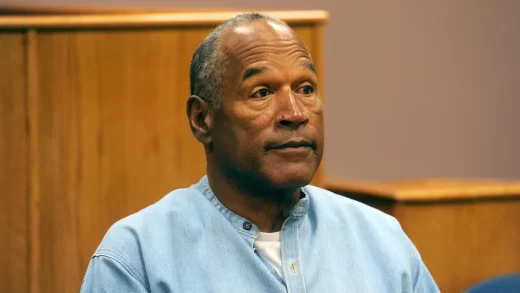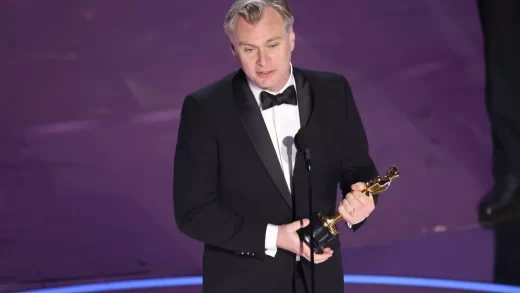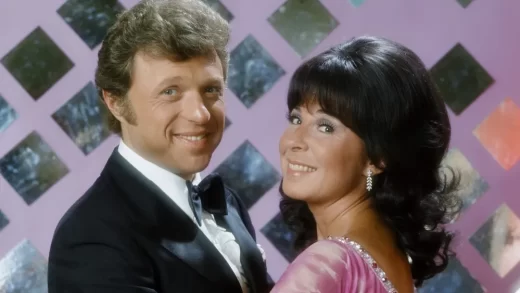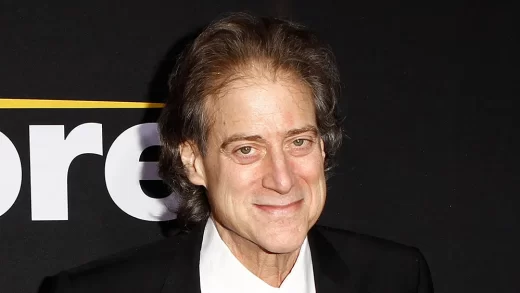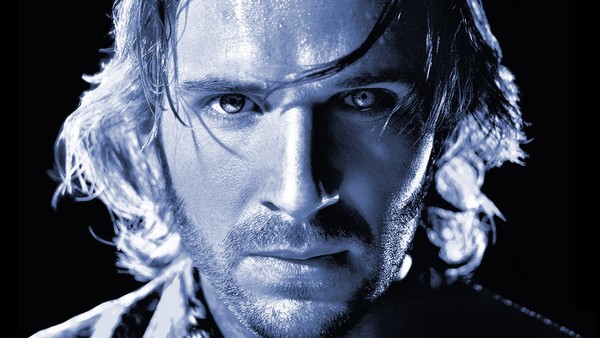 20th Century Fox
20th Century Fox
Across the spectrum of literary and cinematic genres, science fiction has long since proved one of the most enduring and popular of them all. This is no doubt largely down to its tremendous malleability.
Hard science fiction (SF as opposed to ‘sci-fi’) has a rich history in its own right, historically with a fairly select audience; and yet, most readers, and certainly most film lovers are bound to have at least a few favourites that in some way qualify as science fiction, even if the reader/viewer in question doesn’t necessarily regard themselves a genre fan.
For proof of this, we need look no further than the ongoing popularity of Star Wars, or the fact that the biggest box office hit of all time remains the otherworldly adventure Avatar. Terminator, Transformers, the Marvel Cinematic Universe: all these powerhouse franchises can quite reasonably be classed as science fiction.
Still, it’s not all major blockbusters, or such critically praised genre entries as Stanley Kubrick’s 2001: A Space Odyssey, Ridley Scott’s Blade Runner, or – more recently – Denis Villeneuve’s Arrival and Blade Runner 2049. There are plenty more great science fiction films that don’t necessarily get held up in such high regard.
Here are 10 such science fiction films that perhaps don’t get the love they deserve. Reflecting the breadth of the genre, they range from the highly intellectual to the patently absurd; indeed, in some cases they’re a potent mix of the two. But all are well worth seeing if you’ve missed them so far.
[/nextpage][nextpage]
10. Pi (π)
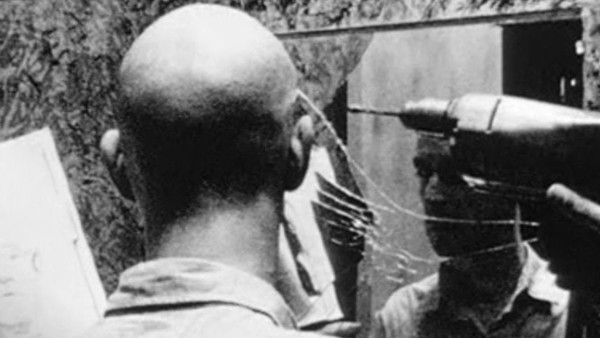 Artisan Entertainment
Artisan Entertainment
Years before he briefly revived Mickey Rourke’s career with The Wrestler, steered Natalie Portman to Oscar glory with Black Swan, and freaked out just about everyone who saw mother!, US filmmaker Darren Aronofsky made his debut with this very unusual, ultra low-budget 1998 indie.
Pi’s status as a science fiction film might be disputed by some, but then it’s hard to narrow it down to any specific genre: it might be classed as a psychological thriller, there are clear horror overtones, and even hints of fantasy.
All in all, though, Pi deals with the potential of the human brain, the untapped regions within yet to be accessed – and the bizarre possibilities of such an endeavour. This surely qualifies as science fiction.
Sean Gullette (who also co-wrote the story with Aronofsky and Eric Watson) stars as Max, a genius mathematician working on a theory that numbers can explain everything in nature. Attempting to make stock market predictions via the mathematical constant pi, Max’s computer churns out a seemingly random number which turns out to have very significant ramifications.
Max soon finds himself being followed by mysterious strangers, with all manner of sinister forces amassing around him in order to capitalise on his ‘discovery’… or is it all just a paranoid delusion?
It sounds confusing as hell, and – well – it is. But you don’t need to understand the mathematics to be captivated by the incredibly tense, oppressive, mind-bending atmosphere the film generates.
[/nextpage][nextpage]
9. Altered States
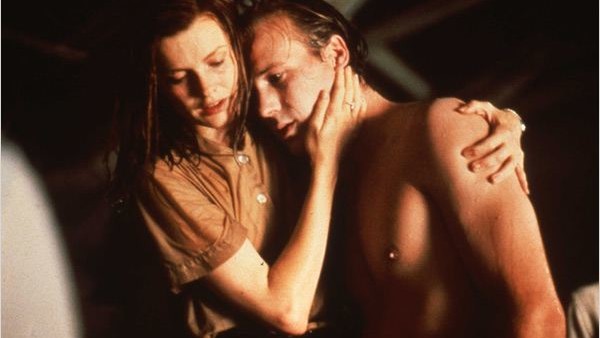 Warner Bros.
Warner Bros.
Director Ken Russell’s 1980 adaptation of Paddy Chayefsky’s novel is another mind-bending entry that might be deemed to stretch the boundaries of what we classify as science fiction.
William Hurt (in what was his first film role, remarkably) takes the lead as Dr Edward Jessup, a psychologist who becomes fascinated with exploring different states of consciousness, theorising that these can unlock the origins of human intelligence.
Through a combination of sensory deprivation techniques and a rare plant with hallucinogenic qualities, Ed starts experiencing these altered states for himself – but in so doing, begins to radically rewrite his own genetic structure.
As is the norm in a Ken Russell film, it’s all trippy as hell and outrageously over-the-top, so it can be a little difficult to take seriously; even more so if you’ve seen the South Park episode that spoofs it.
Even so, Altered States delves into some fascinating subject matter, both as a speculation on the nature of consciousness and life itself, as well as a compelling drama about the destructive potential of obsession.
[/nextpage][nextpage]
8. Colossal
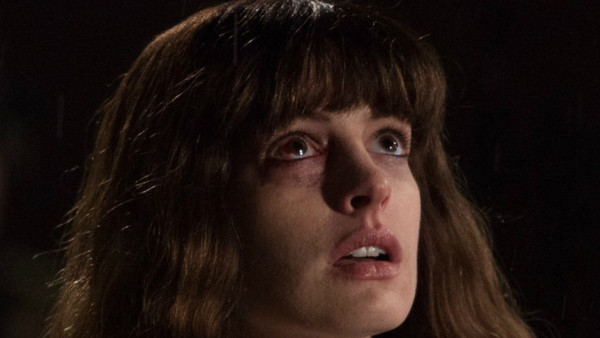 NEON
NEON
Curious that a movie starring one of the best-known actresses currently working in film could be so widely ignored, yet 2017’s Colossal suffered just that fate: in and out of cinemas with very little aplomb, reportedly taking barely $3 million at the box office, despite the presence of the typically bankable Oscar-winner Anne Hathaway.
Still, there’s no denying that writer-director Nacho Vigalondo’s film was always likely to be too weird for mainstream tastes. Hathaway stars as Gloria, a recently unemployed alcoholic forced to move back from New York to her sleepy home town. Bizarrely, her move coincides with the sudden arrival of a giant monster in Seoul.
Naturally, this news grabs everyone’s attention – but no one is more alarmed than Gloria, who comes to the shocking realisation that she is in some way inadvertently controlling the monster and its movements.
Colossal is a very strange blend of grounded, lo-fi indie drama and giant monster movie. Ultimately, the human elements take precedence, and the fairly low budget means that the special effects aren’t quite so great as we’d like.
Even so, in common with all the best science fiction, Vilagondo establishes clear rules behind the bizarre phenomena and explores them to interesting dramatic effect. And it’s all very well acted, Hathaway doing fine work as ever, whilst Jason Sudeikis – an actor generally known for lighter roles – does surprisingly well with a more dramatic role.
[/nextpage][nextpage]
7. The Guyver

Once again, one of the great things about science fiction is its range: how it can encompass high drama, lofty themes and sophisticated ideas… or, at the other end of the spectrum, low-brow, theatrical, Saturday morning cartoon-ish fun. 1991’s The Guyver clearly belongs in the latter category.
A live-action adaptation of Yoshiki Takaya’s manga Bio Booster Armor Guyver, it stars Jack Armstrong as a young, fairly dim martial arts student who is unwittingly fused with a piece of extra-terrestrial technology that turns him into the Guyver, a deadly living weapon.
Originally released in Europe as Mutronics, The Guyver is notorious for featuring Star Wars legend Mark Hamill in a supporting role, and as a result being mis-marketed to suggest he was the lead. Ultimately, there’s only one real star here, and that’s the spectacularly weird practical FX work.
There’s no denying that The Guyver is an extremely camp, corny, juvenile affair, often coming off like an unusually violent and gory episode of Mighty Morphin Power Rangers; something which has long displeased fans of the darker, less comedic source material (hence the 1994 sequel Guyver: Dark Hero toned down the camp).
However, it’s still tremendous fun, and there’s something very rewarding about a film which includes so many bizarre, body-morphing effects almost entirely via practical means, with no CGI. Much of this FX work was overseen by the film’s co-director, the gloriously named Screaming Mad George.
(Excerpt) Read More at: WhatCulture.com
[/nextpage]
